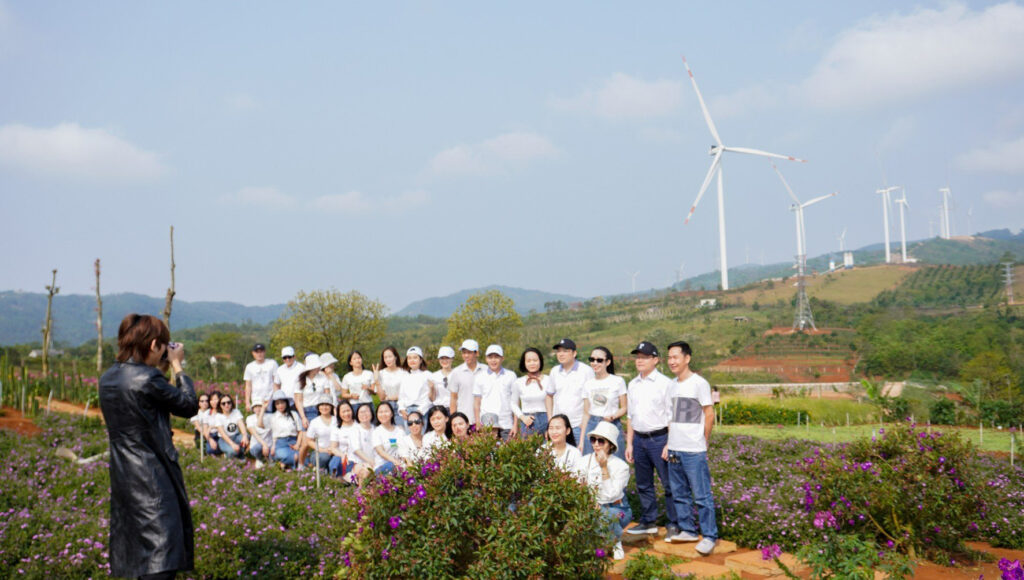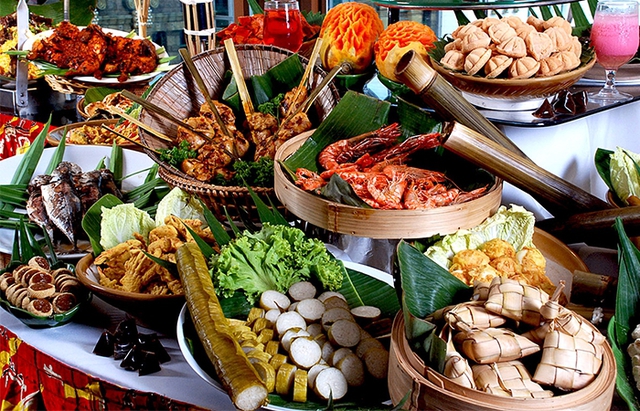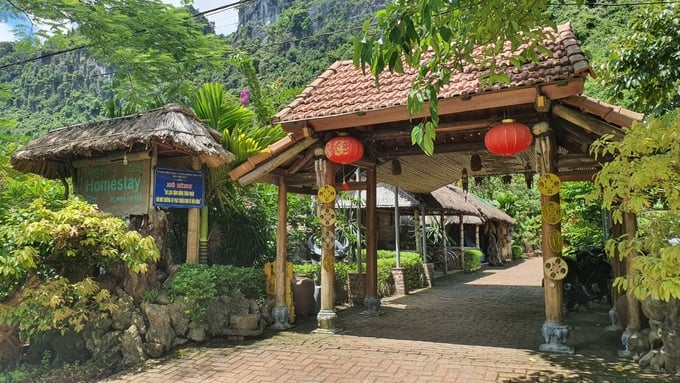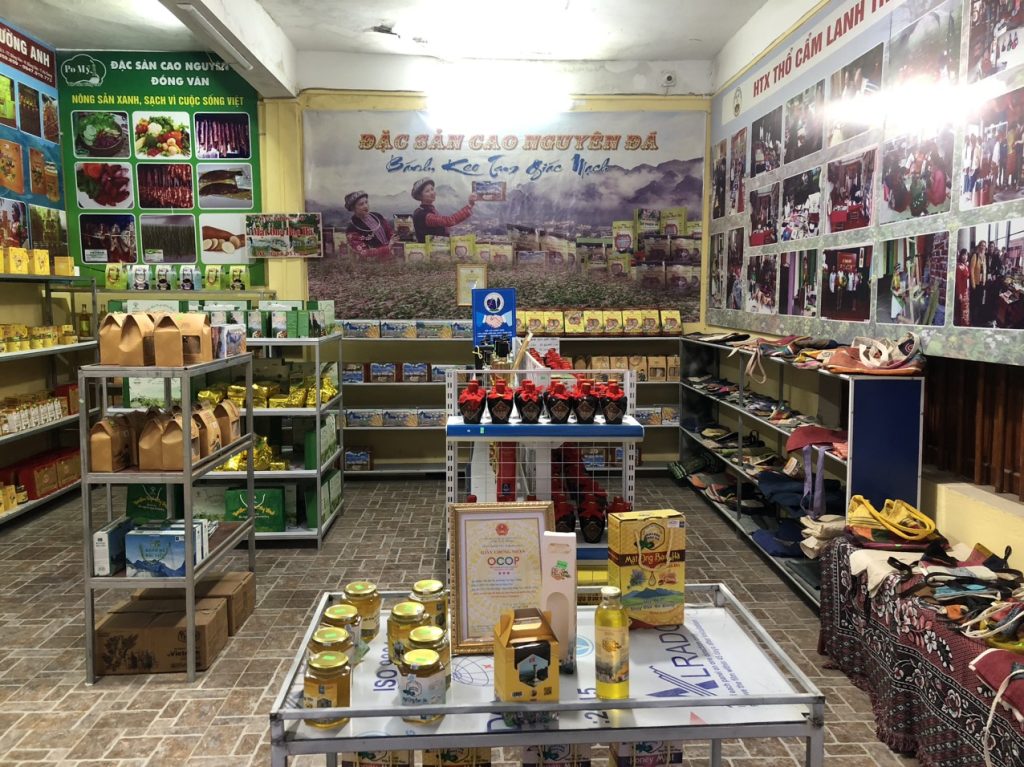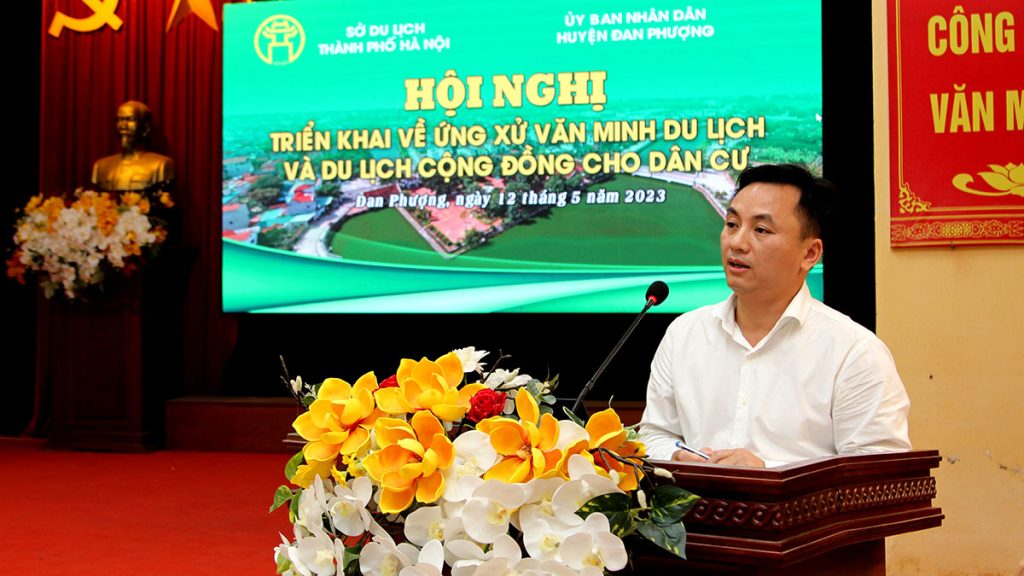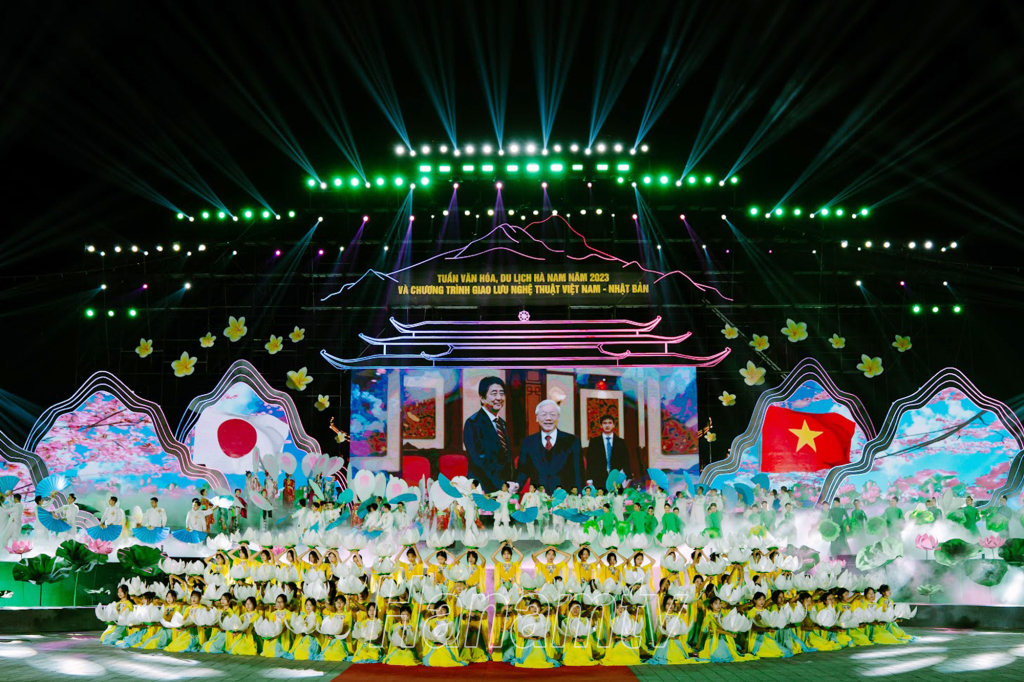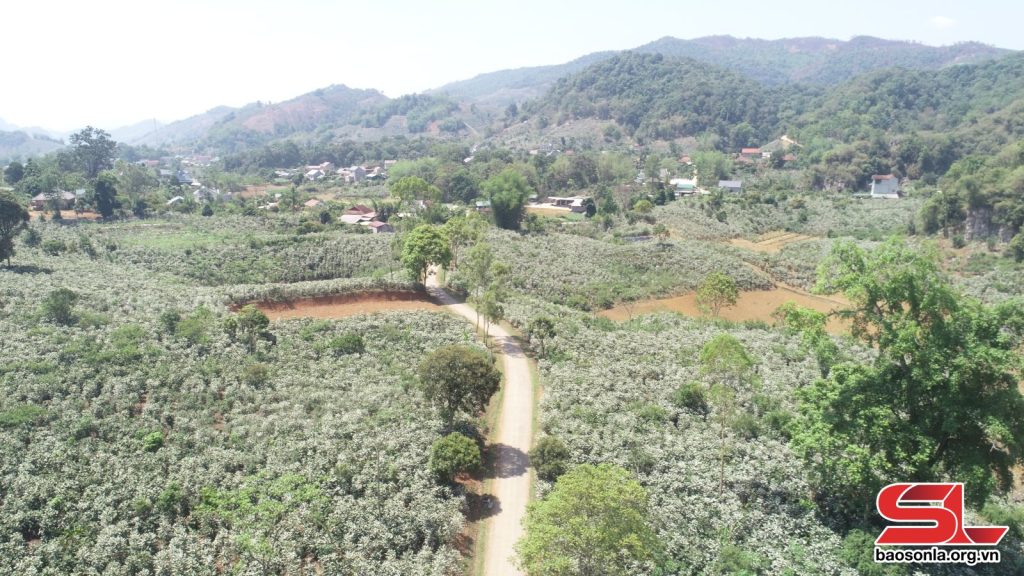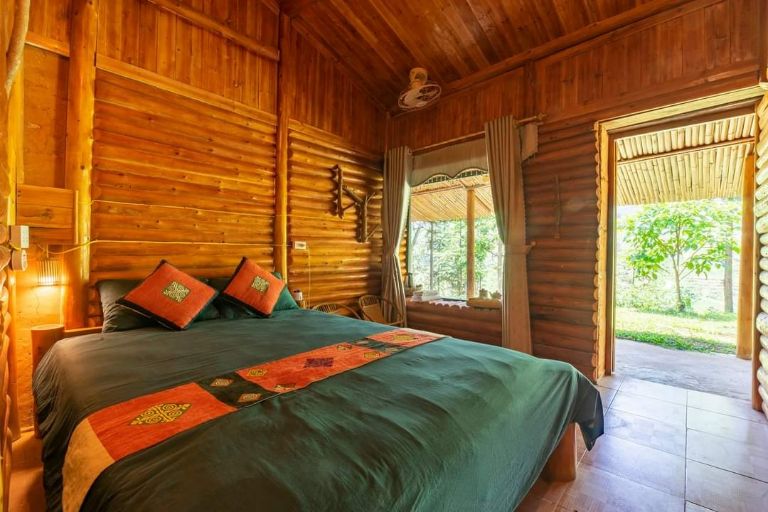Huong Hoa district (Quang Tri province) enjoys a mild and cool climate year-round, along with numerous beautiful, unspoiled, and majestic natural landscapes. Combined with the rich cultural traditions of the Van Kieu and Pa Ko ethnic communities, these factors are paving the way for tourism to become a key economic driver for the region.
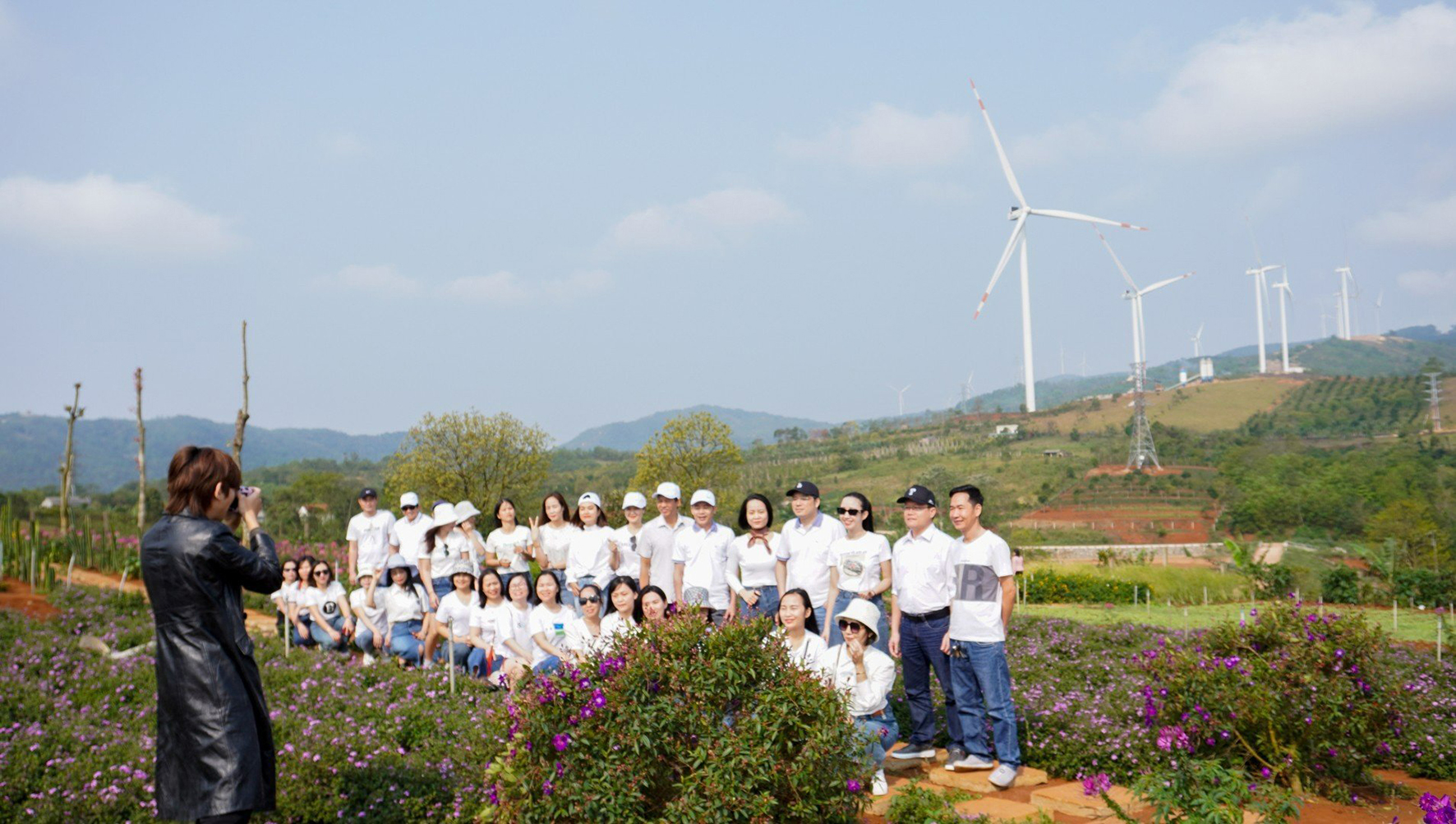
Community-based tourism in Huong Hoa. Photo: N.T.H
Huong Hoa district offers many new and attractive destinations for tourists, including the Ta Puong Waterfall Ecotourism Area, the orchid and strawberry farms at the Bac Huong Hoa Science and Technology Research Center, the Chenh Vanh Community Tourism Village, the Ta Con Airport, Khe Sanh Valley Farm, Lao Bao International Border Gate, and other nearby locations.
Among these, Ta Puong Waterfall Ecotourism Area stands out with its stunning waterfalls and refreshing climate, making it an ideal spot for adventure tourism and ecotourism linked to local cultural experiences.
The Chenh Vanh Village Community-based Ecotourism model, which integrates sustainable forest management according to FSC standards, has been supported by the Netherlands-Vietnam Health Committee and Huong Hoa District People’s Committee. They have launched an ecotourism tour offering visitors the opportunity to explore community forests, learn about the lives of the Van Kieu ethnic group, and discover the natural beauty of Chenh Vanh Waterfall, bamboo forests, and pristine natural forests, which are protected by the local people.
This is one of the first two community forests in Vietnam to meet FSC international standards by the end of 2021, with the area’s beautiful bamboo forests attracting a significant number of tourists.
In 2023, the district welcomed 160,000 visitors, and by the first nine months of 2024, an estimated 170,000 visitors, including around 1,000 overnight stays, generating approximately 60 billion VND in revenue. The district has 30 accommodation facilities with a total of 536 rooms, and tourism activities have provided employment for about 120 people.
Huong Hoa District’s Action Plan No. 48, dated December 19, 2019, aligns with the Politburo’s Resolution No. 08, issued on January 16, 2017, and Quang Tri Provincial Party Committee’s Action Program No. 83, dated July 25, 2017, which focus on developing tourism as a key economic sector. The district has prioritized building three potential tourism product groups: ecotourism, cultural-historical tourism, and community-based tourism and craft village tourism.
For community-based tourism and craft villages, Huong Hoa district has emphasized developing community tourism in Chenh Vanh village, Huong Phung commune, and formulating a plan for community tourism combined with ecotourism in Trang – Ta Puong village, Huong Viet commune.
Additionally, the district has promoted tourism through media outlets, attracting investment by organizing community-based cultural tourism events such as the Highland Spring Market, restoring the traditional festivals of the Van Kieu and Pa Ko ethnic groups, and building visual promotion systems with tourism maps and signage at key tourist locations.
The district has also held several tourism development workshops with experts to devise strategies for capitalizing on local advantages, while creating unique tourism models and products to drive growth in Huong Hoa’s tourism sector.
To ensure the sustainable development of community tourism and establish it as a key economic sector, Huong Hoa district has directed relevant agencies to study new aspects of the 2024 Land Law to guide and apply it to homestays and farmstays, helping locals feel confident in investing in community tourism. The district is focused on linking tourism development with historical revolutionary sites, ecotourism, community tourism, and border tourism.
Gradual planning is underway for community-based tourism in areas that preserve the strong cultural traditions of the Van Kieu and Pa Ko ethnic groups, as well as for homestay tourism in communes like Huong Lap, Huong Viet, Huong Phung, Huong Son, and Khe Sanh town. There are also plans to combine community tourism with the development of traditional craft villages specializing in brocade weaving, basketry, and traditional musical instruments in communes like Huong Viet, Huong Phung, and Lia.
Efforts are being made to attract investment to restore traditional craft villages, preserve and revive various forms of cultural and artistic heritage and festivals, upgrade facilities for visitors, and support households with infrastructure and business knowledge for homestay tourism, fostering a unique identity that will further promote Huong Hoa tourism.
Quang Tri has a rich, large, and unique cultural heritage system with over 500 recognized relics at various levels, including 4 special national relics, 20 national relics, and 476 provincial relics. In recent years, the province has focused on preserving and maintaining cultural heritage to promote its value in life and create conditions for sustainable tourism development. By identifying the importance of preserving and restoring relics and leveraging the unique revolutionary war history of the province, Quang Tri links investment in relic conservation with tourism development, aiming to make tourism an important economic sector and eventually a key economic driver, in line with the spirit of Resolution 08-NQ/TW dated January 16, 2017, from the Politburo.
Accordingly, 3 special national relics have been invested in with a total budget of more than 62 billion VND from central and provincial funds as well as socialized sources. Specifically, the Quang Tri Citadel relic has been invested with VND24.5 billion, the Vinh Moc Tunnels and Vinh Linh tunnel village system have received more than VND12 billion, and the Hien Luong-Ben Hai relic has been allocated VND26 billion.
In recent years, by promoting the unique cultural heritage values of each type of relic, heritage tourism has flourished, and the number of domestic and international visitors to Quang Tri has steadily increased. In 2022, the total number of tourists to Quang Tri was estimated at 1,550,000, a 301.5% increase compared to 2021.
Of this, international visitors were estimated at 5,400, while domestic visitors reached 1,544,600. Total social tourism revenue was estimated at VND1,475 billion. In the first quarter of 2023, the total number of tourists was estimated at 457,630, including 9,300 international visitors and 448,330 domestic visitors. Social tourism revenue was estimated at VND372.4 billion, with specialized tourism revenue estimated at VND125.7 billion.
Khanh Ngoc – Ngoc Mai
en.baoquangtri.vn

